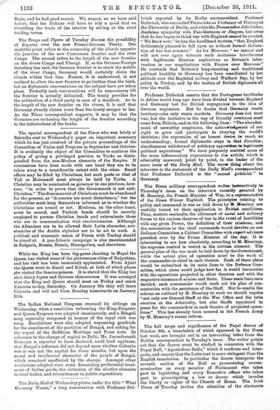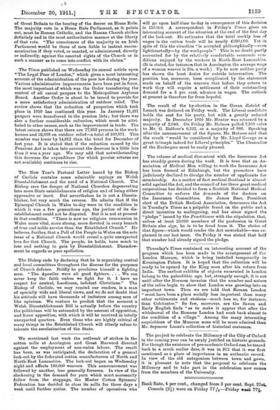The full scope and significance of the Papal decree of
October 9th, a translation of which appeared in the Press last week, are brought out in an interesting letter from the Dublin correspendent in Tuesday's issue. The writer points out that the decree must be studied in connexion with the Papal Bull, " Apostolicae Sedis," which it confirms and inter- prets, and asserts that the Latin text is more stringent than the English translation. In particular the decree interprets the seventh section of the Bull as pronouncing excom- munication on every member of Parliament who takes part in legislating and every Executive officer who takes part in promulgating a law or decree which invades the liberty or rights of the Church of Rome. The Irish Times of Tuesday invites the attention of the electorate
of Great Britain to the bearing of the decree on Home Rule. The majority vote in a Home Rule Parliament, as it points out, must be Roman Catholic, and the Roman Church strikes definitely and in the most authoritative manner at the liberty of that vote. "The consciences of the majority in an Irish Parliament would be those of men liable to instant excom- munication if they voted, or enacted, or administered, directly or indirectly, against the asserted rights of the Church or in such a manner as to come into conflict with its claims."







































 Previous page
Previous page